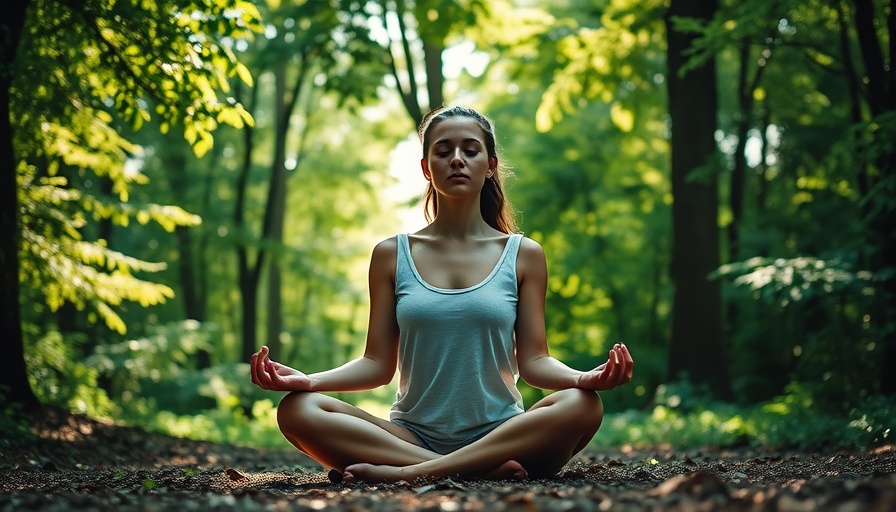
Finding Peace: The Power of Meditation in Overcoming Anxiety
In a fast-paced world characterized by uncertainty and overwhelming challenges, meditation has emerged as a beacon of hope for many who grapple with mental health issues. For those suffering from anxiety disorders, panic attacks, or social anxiety, even a few minutes of calming practice can offer substantial relief. The act of sitting quietly and directing one’s thoughts inwards can significantly alter one’s emotional landscape.
What Can Meditation Do for You?
Meditation serves as a powerful tool for relaxation and stress management, benefiting a wide array of individuals, from students facing test anxiety to professionals dealing with workplace pressures.
Studies have shown that mindfulness techniques greatly reduce anxiety symptoms and improve coping strategies. This ancient practice is particularly potent in addressing issues like generalized anxiety disorder (GAD) and phobias, offering those who engage in it a newfound sense of control and alignment with their inner selves.
Incorporating Breathing Exercises into Daily Life
One of the most effective elements of meditation involves breath control. Simple breathing exercises can be practiced practically anywhere—be it at work, school, or home. Just a few focused breath cycles can ground your thoughts and calm your nerves. For example, try taking a deep breath in for the count of four, holding it for four counts, and exhaling slowly for another four counts. By honing in on your breath, you create a small yet impactful space of stillness amidst chaos.
Mindfulness: A Complement to Traditional Therapies
While meditation provides immediate relief, it can also complement more traditional methods of treatment such as cognitive behavioral therapy (CBT) or psychotherapy. Mental health professionals increasingly advocate for integrating mindfulness practices with established therapeutic approaches. This fusion can bolster emotional intelligence and resilience in patients and even aid in reducing the stigma surrounding seeking help.
The Role of Community in Mental Health Recovery
Community support plays a vital role in the mental health recovery process. Engaging with support groups or joining community outreach programs can offer encouragement and shared experience to those in recovery. Many communities now organize mindfulness workshops, inviting individuals to explore practices together. For those who may feel isolated—with anxiety or depression often manifesting as social withdrawal—these communal spaces can create invaluable networks of support.
Global Perspectives on Anxiety and Meditation
From the Eastern traditions of yoga and mindfulness to Western adaptations of meditation, the journey of healing through stillness is gaining momentum. The COVID-19 pandemic has propelled many individuals to seek alternative strategies for managing their mental health, bringing meditation into mainstream practice.
Cultural considerations are crucial when discussing mental health. Traditional healing practices often intersect with meditation, offering a holistic approach that respects individual cultural contexts. Understanding these cultural variations fosters a more inclusive conversation about mental health.
Taking Action: Call Yourself to a Minute of Stillness
Individuals are encouraged to carve out dedicated time for meditation, beginning with just five minutes a day. As mental health awareness continues to grow, it is vital to engage in practices that nurture our well-being. Resources like meditation apps, guided sessions on social media, and local workshops can provide supportive structures for those embarking on their mindfulness journey.
Moreover, advocating for mental health policies that prioritize access to therapeutic services and community mental health education can contribute positively to societal well-being. Consider phoning the South African Depression and Anxiety Group (SADAG) helpline, or seeking counseling for additional support on your path toward healing.
In conclusion, embracing mindfulness and meditation is not just a personal endeavor; it can have repercussions for the community at large, fostering resilience and understanding as we navigate our mental health journeys together. Let’s take small steps now toward greater peace and mental well-being.
 Add Row
Add Row  Add
Add 




Write A Comment